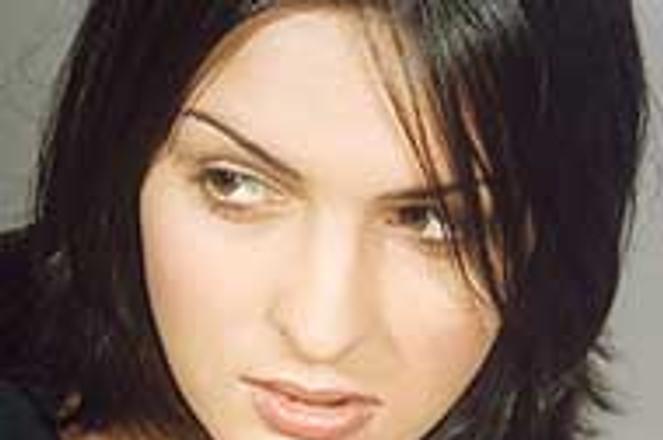Emerging star Jana Kirschner.photo: Ivona Orešková
Koniec dobrý, všetko dobré - A selection of contemporary Slovak musicians
Price: Around 300 Slovak crowns for cassette, 400 for CD
Although still heavily dominated by pop, the Slovak music scene is steadily being infiltrated by other styles. Long standing pop heavyweights such as Richard Müller, Jožo Ráž and Miro Žbirka are increasingly being forced to compete for Slovak album sales with younger, often more innovative stars like soloist Jana Kirschner, 'new punk' group Ine Café and jazz musician Peter Lipa.
Reflecting these changes, production company Universal Music has released a compilation of 17 songs by Slovak artists on an album titled "Koniec dobrý - všetko dobré" (All's well that ends well). The end result, an eclectic alchemy of styles and artists, is a must buy for anyone familiar with or wishing to hear more of the modern Slovak music scene.
The album's first song is a beautifully performed duet called "V slepých uličkách" (In Blind Streets) by Kirschner, a 21-year-old solo artist, and Ivan Tásler, band member of I.M.T. Smile, a pop group which won the Slovak Music Academy's 1998 award for best new band.
Kirschner is a talented, rising star with a stunning voice. She won the 1999 Golden Nightingale, awarded annually to the best female Slovak singer, after her second album, "In a Strange Town", went platinum in Slovakia.
A featured artist for her thoughtful and reflective lyrics, Kirschner performs a second song, "Modrá" (Blue), with random glimpses into her personal life. Her honest lyrics show her determination to abandon the traditional pop-hit-recipe of love, silly boys and secret romantic rendezvous so often harped on by Slovak artists in the past.
Of course, older pop stars are still heavily represented on the album. In the late 80's, the Czechoslovak pop scene was dominated by Slovak artists, headed by the legendary band Elan and front man Jožo Ráž, who was seriously injured in a motorcycle accident last summer. In the early 90's, the reins were turned over to Team and their lead-singer Paĺo Habera. While both men have steadily faded out of the scene, they are included on the album with songs from their relatively unsuccessful solo careers.
Certainly no Slovak compilation album would be complete without a contribution from legendary pop icon Richard Muller. The most popular Slovak singer for the better part of 20 years, Müller sings "Cigaretka na dva ťahy" (Cigarette for two drags) in his trademark deep tones.
Other contributing artists include Miro Žbirka, a Slovak who boasts (pompously and constantly) British roots. Žbirka sings in English and has many fans in both Slovakia and the Czech Republic.
Jazz musician Lipa plays "Get on Board", 80's star Beata Dubasová attempts a comeback with "Natalia", Iné Café, sometimes compared to America's Green Day, bangs out "Poraď si sám" (Do It Yourself), and B3, also known as the Slovak Prodigy, checks in with "Všetko, čo mám rád" (Everything I like).
The album's many highlights far outweigh its occasional flops. The biggest disappointment of the album is the inclusion of Štyri (Four), an all-girl band often referred to as the Slovak Spice Girls who are perfect evidence that being swarmed by screaming pre-pubescent girls does not translate into musical ability. But excluding that foul spice additive, Koniec dobrý, všetko dobré is a wonderful album well-worth listening to.


